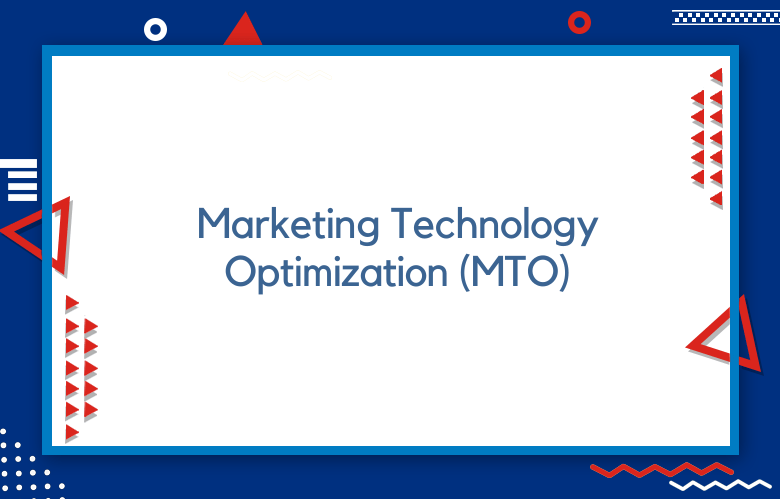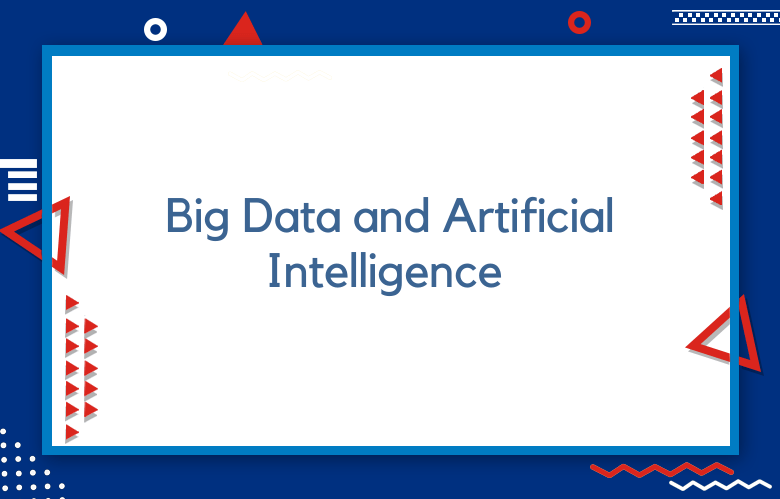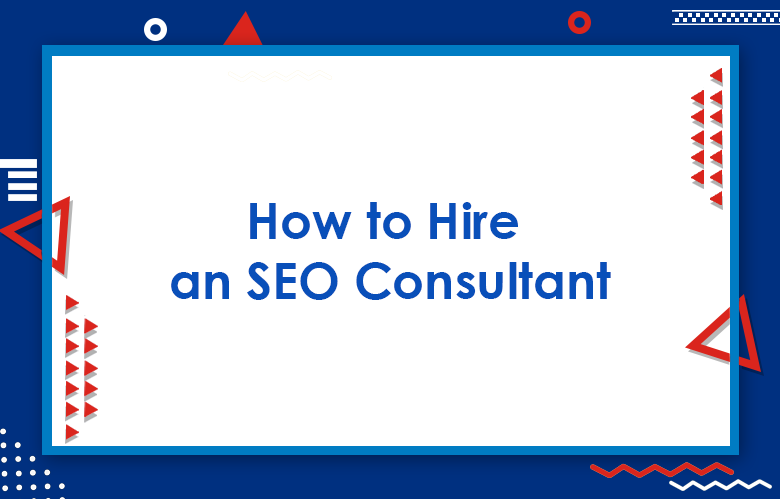What is Marketing Technology Optimization (MTO), and Why Your Business Needs It

In today’s digital age, it’s no secret that businesses must stay competitive. That’s why marketing technology optimization (MTO) has become increasingly important.
MTO is optimizing a business through technology, specifically in marketing, data collection, and analysis.
With MTO, companies can gain a competitive edge by using data to increase their visibility online and better serve their customers.
Marketing technology optimization (MTO) is a process that combines marketing and technology to maximize the efficiency of your online presence.
It allows you to streamline activities, automate processes, and measure performance to reach your target market more effectively.
Let’s explore the benefits of MTO for your business. In today’s digital world, marketing technology optimization (MTO) is essential for any business that wants to succeed.
MTO is a process that uses data-driven insights to optimize your digital marketing campaigns, allowing you to reach more customers cost-effectively. Let’s break down what MTO is and why your business needs it.
Maximizing ROI with Marketing Technology Optimization: Best Practices and Strategies?
Define Your Business Goals
Defining your business goals is the first step in any marketing technology optimization initiative. What are you trying to reach with your marketing efforts?
Do you need to increase brand awareness, drive more traffic to your website, or generate more leads?
Once you know what you need to achieve, you can select the right marketing technologies to help you achieve it.
Conduct a Marketing Technology Audit
The next step is to conduct a marketing technology audit. This will help you take inventory of the marketing technologies you currently have in place and identify which ones are working and which ones are not.
This will also give you a good understanding of how your marketing technology stack compares to your competitors.
Select the Right Marketing Technologies
Once you have identified your business goals and conducted a marketing technology audit, it’s time to select the right marketing technologies.
Various marketing technologies are available, so selecting the ones that will help you achieve your goals is essential.
Some popular marketing technologies include customer relationship management (CRM) software, marketing automation software, and content management systems (CMS).
Implement the Selected Technologies
After you have selected the right marketing technologies, it’s time to implement them.
This can be a challenge, as there is often a learning curve associated with new technologies.
However, many resources are available to help you get started, including online tutorials, webinars, and user forums.
Train Your Team on how to use the new technologies
Once you have implemented the selected technologies, training your team on how to use them is essential. This will ensure that they can get the most out of the new tools and maximize their ROI.
There are many ways to train your team, including online courses, instructor-led training, and hands-on practice.
Monitor and Adjust as Needed
After training your team on new technologies, monitoring their performance and adjusting as needed is essential.
This includes tracking metrics like website traffic, leads generated, and sales closed.
If specific tools are not performing as expected, feel free to change or try new things. The goal is always to optimize your marketing efforts for maximum ROI.
How can Marketing Technology Optimization help improve Your Customer Experience?
Marketing technology optimization (MTO) is an effective tool for businesses to improve the customer experience. MTO helps by targeting customers with the right message at the right time.
Companies can tailor their marketing efforts to better serve customers through segmentation, personalization, and automation.
By analyzing customer data, MTO enables businesses to design personalized campaigns and messages based on an individual’s interests and needs.
We allow companies to create highly targeted campaigns that will drive more engagement from a select group of customers. This leads to better conversion rates and higher ROI from these campaigns.
What is the role of Marketing Technology Optimization in Streamlining Your Sales Funnel?
Marketing technology optimization (MTO) is a process that involves leveraging the latest marketing tools and technologies to improve customer experience.
By utilizing the most advanced analytics and automation, marketers can better understand customer behavior, develop tailored marketing strategies, and maximize customer touchpoints.
MTO can help businesses better engage with their customers on a personal level. Companies can tailor their messages to customer needs and interests with AI-enabled predictive analytics.
This helps create a personalized experience that reflects the customer’s needs in real time.
Automation also reduces marketing overhead by streamlining processes such as email campaigns, lead scoring, and content recommendations.
Choosing the Right Marketing Technology Stack for Your Business: MTO Insights?
When selecting the right marketing technology stack for your business, it’s essential to ensure that you choose the tools and technologies that best meet your organization’s needs.
The right marketing tech stack can help you achieve your goals faster and more efficiently while aligning with your overall strategy. To help you make an informed decision, here are a few things to consider when selecting the right stack for your business:
Understand Your Goals:
The first step in choosing the right marketing technology stack is clearly understanding your goals and objectives. Ask yourself what you need to achieve through your marketing technology stack. Are you looking for increased lead generation? Or do you need a tool that can provide insights into customer behavior? Identifying which areas need improvement or where new opportunities can be found will give you a better understanding of what type of technology will best suit your needs.
Consider Your Budget
While selecting the most appropriate technologies for your business is essential, budget constraints are always a consideration when purchasing. Before making any decisions, ensure that whatever marketing tech stack you choose fits comfortably within your budget.
Research Options
Once you have identified the technologies that could benefit your organization, it’s time to start researching different providers and their offerings. Read reviews from other businesses that have utilized their services and speak with experts to get a well-rounded picture of each option’s strengths and weaknesses.
Test Out Solutions
Once you have narrowed down potential solutions, conduct trials on each one to get an idea of how they work in practice and how they compare to one another in terms of features and functionality.
This step is especially important if you plan to integrate multiple technologies into one unified ecosystem. Testing each component helps determine whether or not it is compatible before implementing it at scale across your organization.
By following these steps when selecting the right marketing tech stack for your business, organizations can ensure they’re making an investment that will pay off over time by helping them reach their desired objectives more quickly and efficiently than ever before!
Building a practical MarTech Roadmap: A guide to Marketing Technology Optimization?
Building a practical MarTech roadmap can be a daunting task for any marketing team, but with careful planning and execution, it can be an enriching experience.
A MarTech roadmap is a detailed action plan outlining the strategy and tactics to optimize marketing technology.
It should include specific goals, measurable metrics, and timeline milestones that will help keep your team focused on achieving the desired outcome.
When building a practical MarTech roadmap, it’s essential to consider how each component of your technology stack fits into your overall marketing plan.
Every tool or platform should have a purpose and be part of a larger campaign strategy. Consider which channels you want to focus on and what content you want to produce to maximize return on investment (ROI).
Setting up KPIs that measure success can also help you track progress over time and make adjustments as necessary.
What are the benefits of integrating Artificial Intelligence and Machine Learning in Marketing Technology Optimization?
Increased Efficiency
One of the primary benefits of integrating artificial intelligence (AI) and machine learning (ML) into marketing is increased efficiency.
By using AI and ML, businesses can automate tasks traditionally done by human employees, such as data entry and customer service.
This will free employees to focus on more strategic tasks, increasing efficiency.
Improved Customer Service
Another benefit of using AI and ML in marketing is improved customer service. Businesses can provide more personalized service by understanding customers’ needs and preferences.
AI and ML can also automate customer service tasks, like responding to frequently asked questions or providing recommendations.
Greater Insights
AI and ML can also gain more significant insights into customer behavior. By analyzing large data sets, businesses will identify patterns and trends that they may not have been able to see before.
This information can then be used for better marketing strategies and campaign decisions.
More Effective Targeting
Another benefit of using AI and ML in marketing is more effective targeting.
With AI and ML, businesses can target their advertising more effectively by understanding the needs and preferences of their target audience.
AI and ML can also identify new target markets a company may have yet to consider.
Reduced Costs
Using AI and ML in marketing can also help to reduce costs. Businesses can save on labor wages by automating tasks traditionally done by human employees.
AI and ML can help businesses to reduce advertising costs by more effectively targeting their advertising spend.
Increased Revenue:
Ultimately, any business aims to increase revenue. Integrating AI and ML into marketing can help companies to achieve this goal in several ways.
First, by increasing efficiency and reducing costs, companies can free up more money to reinvest in other areas of the company or to give back to shareholders in the form of dividends or share repurchases.
Are you unlocking the potential of Marketing Automation with Marketing Technology Optimization?
Marketing automation is invaluable for any business, allowing marketers to streamline their processes and increase efficiency.
By leveraging marketing technology optimization techniques, companies can unlock the potential of their marketing automation platform and take it to the next level.
With marketing technology optimization, marketers can fine-tune their automation to maximize its effectiveness and reach.
This includes optimizing lead capture and segmentation, setting up personalized customer journeys, and personalizing content and campaigns.
These activities can yield meaningful results, such as increased leads generated, higher conversion rates, improved customer retention, and more efficient resource use.
Measuring the success of Your Marketing Technology Optimization efforts: Key Metrics to Track?
Traffic
One of the most fundamental metrics to measure the success of marketing technology optimization efforts is traffic.
This metric counts the number of people who visit your website or landing page. Your efforts will likely be successful if you see increased traffic after implementing new marketing technology.
Leads:
Another critical metric to track is the count of leads generated. A charge is a potential customer interested in your product or service.
You must typically capture contact information to generate leads, such as an email address or phone number. You can then follow up with these leads to try and convert them into customers.
Sales
Of course, one of the ultimate measures of success is sales. Your efforts will likely pay off if you see increased sales after implementing new marketing technology.
However, it is essential to remember that there may be a lag between when a lead is generated and when they make a purchase, so don’t expect an immediate sales increase.
Cost per Lead
Another metric to track is cost per lead (CPL), which measures the cost of generating each piece of information.
Calculating CPL, divide your total marketing costs by the number of leads generated. A low CPL indicates that your marketing efforts are efficient and effective.
Conversion Rate:
The conversion rate is the percentage of leads that are converted into customers. To calculate the conversion rate, divide the number of customers by the number of leaders and multiply by 100.
A high conversion rate indicates that your marketing efforts convert leads into customers successfully.
Customer Lifetime Value:
Customer lifetime value (CLV) measures the total value a customer will bring to your business throughout their relationship.
Calculate CLV, multiply the average purchase value by the average number of purchases made per customer, and subtract the average customer acquisition costs. A high CLV indicates that your customers are valuable and worth investing in.
Net Promoter Score
Net promoter score (NPS) measures customer satisfaction and loyalty. It is calculated by asking customers how they are to recommend your product or service on a scale from 0-10 and then categorizing them as follows:
0-6 = Detractors, 7-8 = Passives, and 9-10 = Promoters. To calculate NPS, subtract the percentage of Detractors from the portion of Promoters.
Trends and Predictions in Marketing Technology Optimization: Insights from Industry Experts?
Marketing technology will continue to grow in popularity as businesses seek more efficient and cost-effective methods of reaching their target audiences.
Marketing technology platforms will become more user-friendly and intuitive, making them easier for businesses of all sizes to implement and use.
Artificial intelligence (AI) in marketing technology will increase as businesses look to automate repetitive tasks and free up time for more strategic activities.
Integrating marketing technology with other business systems (such as CRM and ERP) will become more commonplace as businesses seek ways to streamline their operations.
The use of marketing technology in developing countries will grow faster than in developed countries as businesses in these regions seek to level the playing field with their global counterparts.
The cost of marketing technology solutions will continue to decrease, making them more affordable for small businesses and start-ups.
The number of marketing technology vendors will increase as the market becomes crowded and competitive.
The quality of marketing technology products will improve as vendors strive to differentiate themselves in a crowded marketplace.
Certification programs for marketing technologists will become more common as businesses seek to ensure their employees have the skills to use these tools effectively.
Conclusion
Marketing Technology Optimization (MTO) is a crucial tool for any business looking to advance in today’s competitive digital landscape.
By combining data-driven analytics with creative marketing strategies, MTO enables firms to maximize efficiency while gaining valuable insights into customer behavior to create more effective campaigns tailored specifically for them.
Investing in MTO is an investment in your business’s future success—one that will pay off tenfold in the long run!
Marketing technology optimization offers businesses a powerful way to maximize the return on investment from their online campaigns while staying ahead of their competition in terms of visibility online.
With suitable sources and strategies in place, you can ensure that your digital presence reaches its full potential—and at Metric Marketing, we specialize in helping companies do just that!
Contact us today if you want more information about how our experienced team can help you optimize your marketing technology efforts for maximum success!
Call: +91 9848321284
Email: [email protected]



